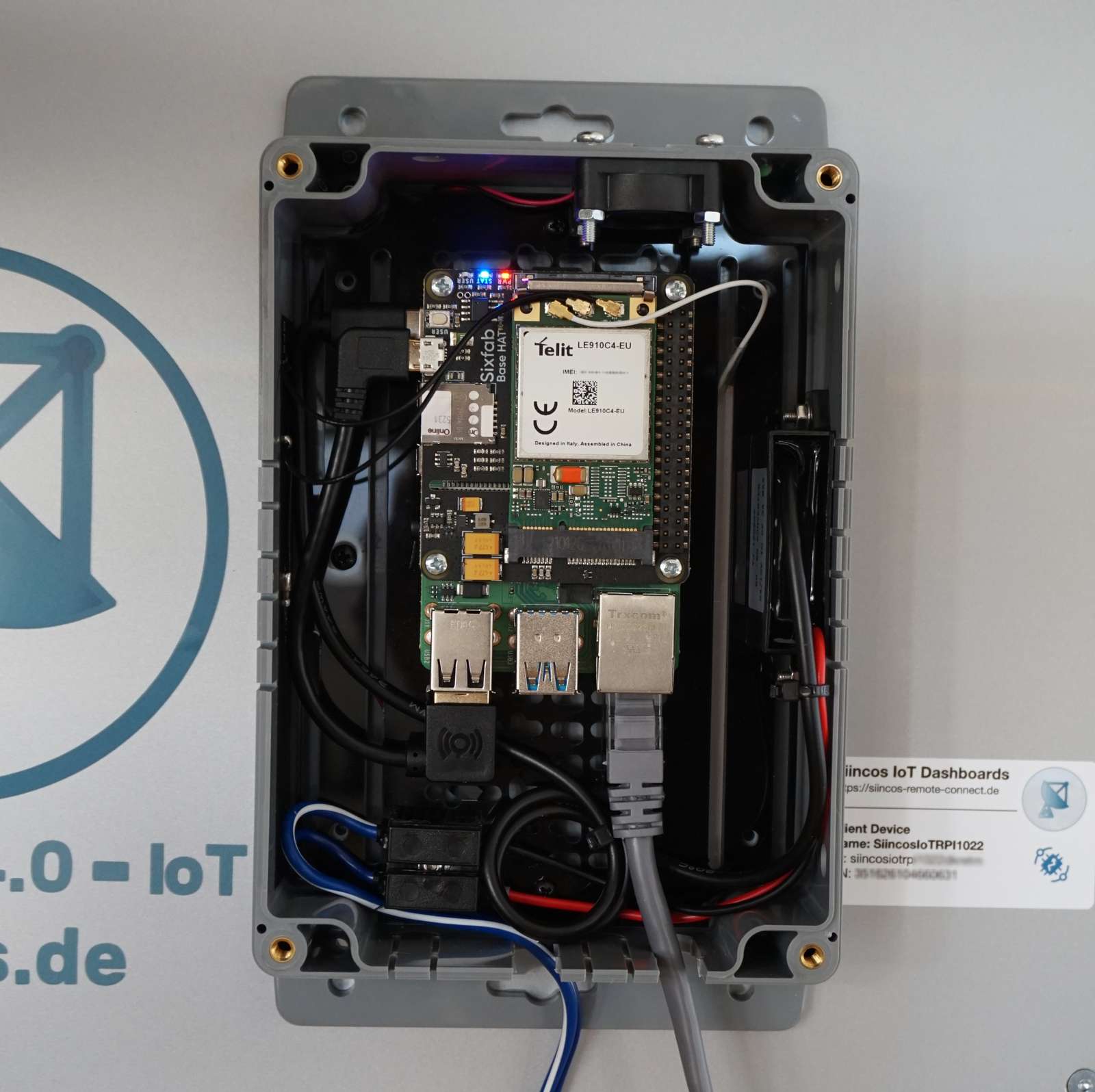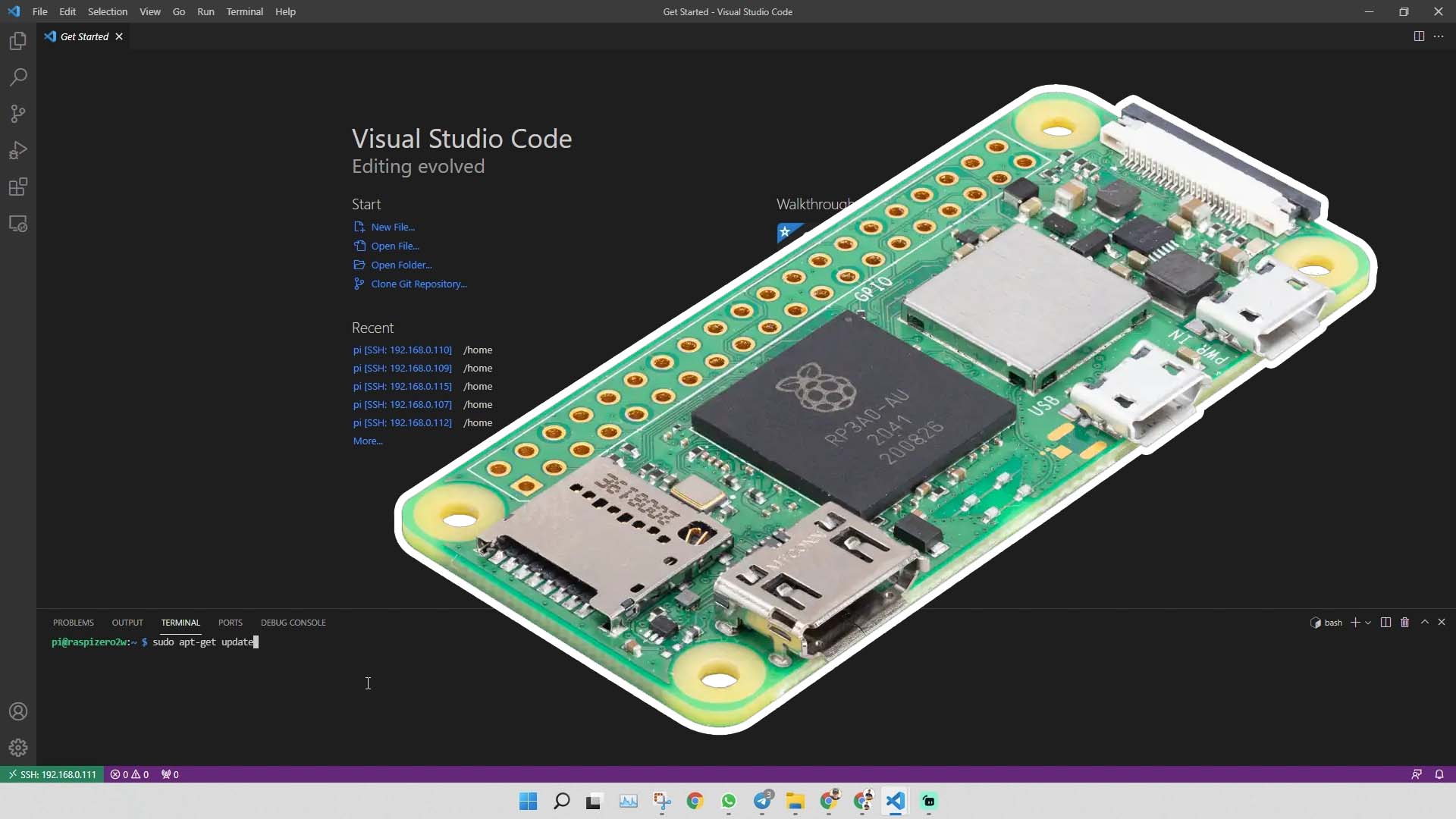Best Remote IoT Platform SSH Key Raspberry Pi For Your Smart Projects
Hey there, tech enthusiasts! If you're diving into the world of remote IoT platforms and trying to figure out the best SSH key setup for your Raspberry Pi, you're in the right place. Whether you're building a home automation system or managing industrial IoT devices, having a solid remote IoT platform is crucial. Let’s deep dive into this and see how we can optimize your Raspberry Pi setup using SSH keys to ensure secure and seamless remote access.
Nowadays, IoT is everywhere, from your smart fridge to industrial automation systems. But here's the deal—when you're working on IoT projects, especially with devices like Raspberry Pi, you need a reliable way to manage them remotely. That’s where the best remote IoT platforms come in. These platforms not only provide the tools you need but also ensure your data stays safe.
Before we get into the nitty-gritty of remote IoT platforms and SSH keys, let me ask you—do you know what an SSH key is and why it matters for your Raspberry Pi? If not, don’t worry. We’ll break it all down for you. By the end of this article, you’ll be a pro at setting up secure remote connections for your IoT projects.
Read also:Remoteiot Platform Ssh Download For Mac Your Ultimate Guide
Why Remote IoT Platforms Matter
Remote IoT platforms are like the backbone of modern IoT projects. They allow you to manage, monitor, and control your IoT devices from anywhere in the world. Imagine being able to tweak your smart home settings while sipping coffee in a café miles away. Sounds cool, right? But here's the catch—not all platforms are created equal.
Key Features to Look for in a Remote IoT Platform
When choosing the best remote IoT platform for your Raspberry Pi, there are a few things you should consider:
- Scalability: Can the platform grow with your project? If you start small but plan to expand, you need something that can handle it.
- Security: IoT devices are prime targets for hackers. Your platform should offer robust security features, including support for SSH keys.
- Integration: Does the platform play nice with other tools and services you use? Compatibility is key.
- Support: You don’t want to be stuck with a platform that leaves you hanging when things go wrong. Look for platforms with good documentation and community support.
What Makes SSH Keys Essential for Raspberry Pi?
SSH keys are like the golden ticket to secure communication between your computer and your Raspberry Pi. Instead of relying on passwords, which can be easily guessed or brute-forced, SSH keys provide a more secure authentication method. Plus, they make logging in faster and more convenient once set up.
How SSH Keys Work
Here’s a quick rundown of how SSH keys work:
- You generate a pair of keys: a public key and a private key.
- The public key is placed on your Raspberry Pi, while the private key stays on your computer.
- When you try to connect to your Raspberry Pi, the SSH server checks the public key against the private key on your computer.
- If they match, you’re granted access. No password needed!
This process ensures that only authorized devices can connect to your Raspberry Pi, reducing the risk of unauthorized access.
Top Remote IoT Platforms for Raspberry Pi
Now that you understand the importance of remote IoT platforms and SSH keys, let’s take a look at some of the best options available. These platforms are designed to work seamlessly with Raspberry Pi and offer the features you need for secure and efficient IoT management.
Read also:Jameliz Erome The Rising Star Shaping The Future Of Entertainment
1. ThingsBoard
ThingsBoard is a powerful open-source IoT platform that supports both cloud and on-premise deployments. It offers a user-friendly interface, robust data visualization tools, and extensive integration options. Plus, it integrates well with SSH for secure device management.
2. Losant
Losant is another excellent choice for remote IoT projects. It provides a drag-and-drop workflow builder, making it easy to automate tasks and manage devices. Losant also supports SSH connections, ensuring your Raspberry Pi stays secure.
3. Ubidots
Ubidots is known for its ease of use and flexibility. Whether you're building a simple home automation system or a complex industrial solution, Ubidots has got you covered. It also supports SSH, so you can manage your Raspberry Pi remotely with confidence.
Setting Up SSH Keys on Your Raspberry Pi
Ready to set up SSH keys for your Raspberry Pi? Follow these steps to ensure your device is secure and ready for remote access:
Step 1: Generate SSH Keys
First, you’ll need to generate an SSH key pair on your computer. Open your terminal and run the following command:
ssh-keygen -t rsa -b 4096 -C "your_email@example.com"
This will create a public and private key pair. You can accept the default file location and add a passphrase for extra security if you like.
Step 2: Copy the Public Key to Your Raspberry Pi
Once your keys are generated, you need to copy the public key to your Raspberry Pi. Use the following command:
ssh-copy-id pi@your_raspberry_pi_ip
Replace "your_raspberry_pi_ip" with the actual IP address of your Raspberry Pi. You’ll be prompted to enter the Raspberry Pi’s password one last time.
Step 3: Disable Password Authentication
To fully secure your Raspberry Pi, disable password authentication and rely solely on SSH keys. Edit the SSH config file:
sudo nano /etc/ssh/sshd_config
Find the line that says "PasswordAuthentication yes" and change it to "PasswordAuthentication no". Save the file and restart the SSH service:
sudo service ssh restart
Best Practices for Securing Your IoT Setup
While SSH keys are a great step towards securing your Raspberry Pi, there are other best practices you should follow:
- Keep Software Updated: Regularly update your Raspberry Pi’s operating system and installed software to patch any security vulnerabilities.
- Use Strong Passwords: Even though you’re using SSH keys, it’s still a good idea to use strong passwords for other accounts.
- Monitor Logs: Keep an eye on your system logs for any suspicious activity.
- Limit Access: Restrict access to your Raspberry Pi to only those who need it.
Data and Statistics on IoT Security
According to a recent report by Cybersecurity Ventures, cybercrime is expected to cost the world $10.5 trillion annually by 2025. IoT devices are a significant part of this threat landscape, with many attacks targeting poorly secured devices. By using remote IoT platforms and SSH keys, you can significantly reduce the risk of becoming a victim.
Real-World Applications of Remote IoT Platforms
Remote IoT platforms have countless applications across various industries. Here are a few examples:
1. Smart Agriculture
Farmers use IoT devices to monitor soil moisture, weather conditions, and crop health. With a remote IoT platform, they can manage these devices from anywhere, ensuring optimal growing conditions.
2. Industrial Automation
In manufacturing, IoT devices are used to monitor equipment performance and predict maintenance needs. Remote access allows engineers to troubleshoot issues without being physically present.
3. Smart Homes
From controlling lights to managing security systems, remote IoT platforms make it easy for homeowners to automate and secure their homes.
Troubleshooting Common SSH Issues
Even with the best setup, you might encounter issues with SSH. Here are a few common problems and how to fix them:
- Connection Refused: Check that the SSH service is running on your Raspberry Pi and that the firewall isn’t blocking the connection.
- Permission Denied: Ensure your public key is correctly placed in the authorized_keys file on your Raspberry Pi.
- Timeout Errors: Verify that the IP address and port number are correct and that there are no network issues.
Conclusion: Secure Your IoT Projects Today
That’s a wrap, folks! We’ve covered everything you need to know about the best remote IoT platforms, SSH keys, and securing your Raspberry Pi. By following the steps outlined in this article, you can ensure your IoT projects are both secure and efficient.
So, what are you waiting for? Get started on securing your Raspberry Pi today and take your IoT projects to the next level. Don’t forget to leave a comment below and share this article with your fellow tech enthusiasts. Happy building!
Table of Contents
- Why Remote IoT Platforms Matter
- Key Features to Look for in a Remote IoT Platform
- What Makes SSH Keys Essential for Raspberry Pi?
- How SSH Keys Work
- Top Remote IoT Platforms for Raspberry Pi
- Setting Up SSH Keys on Your Raspberry Pi
- Best Practices for Securing Your IoT Setup
- Data and Statistics on IoT Security
- Real-World Applications of Remote IoT Platforms
- Troubleshooting Common SSH Issues


